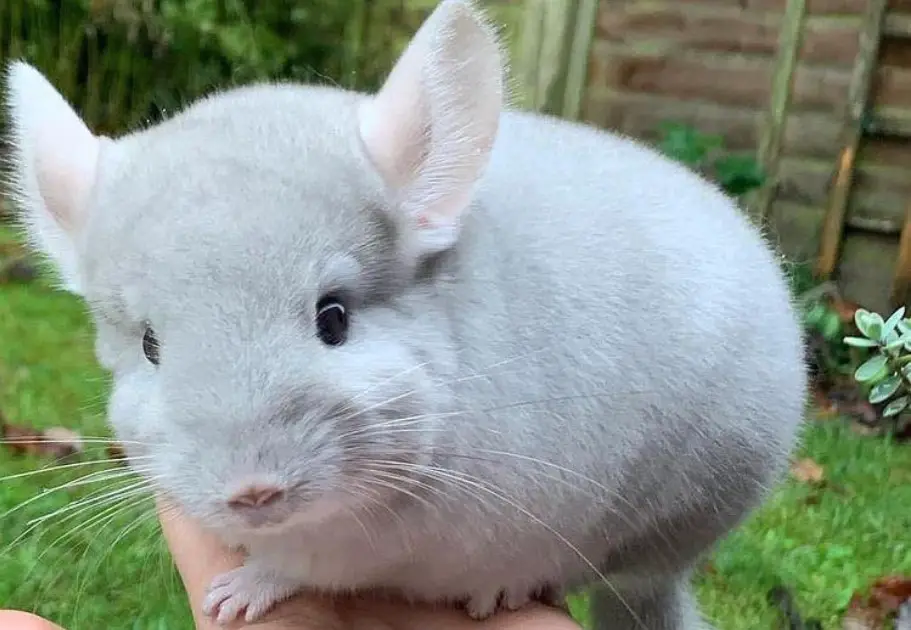Chinchillas as pets are great, but they also need to be handled with proper care. Before you buy a chinchilla as pet, you must consider some factors. Having an exotic pet like chinchillas requires you to learn and find out the best ways for supporting them practical and emotional so they can continue to thrive in captivity and their new environment. It does not matter how cute and good they are, chinchillas are not the right pet for everyone.

Chinchillas can be quite nervous and scared, hence are not always suitable pets for young children or very busy, noisy households. They can take a long time to settle down into a new home and overcome their natural fear of people. They need time and patience when settling them into a new home.
Chinchilla Needs for Proper Care
What to Look For When Buying a Chinchilla
Chinchillas can live for 20 years, although 10-15 years appears to be the average life span, so future considerations need to be taken into account.
Before you buy, learn about the vets you can take your chinchilla if there is need. I repeat learn IF there is a vet for this exotic mammal. I insist telling that because in many cases there are not vets to support our chinchilla health issues. You must be willing to take your chinchilla to the vets and pay the bills. Unfortunately, it is quite expensive to have chinchillas as pets.
Prepare to buy a big cage or two cages to make one large. You will also need many accessories for his cage most of it to gnaw, which is quite expensive and some first aid medicines. The chinchilla itself is quite an expense.
Chinchillas do like company and are social animals, therefore … If kept alone they require plenty of daily attention to avoid boredom and loneliness. If kept in male and female pairs, it must be borne in mind that breeding is generally inevitable. You will need spare cages that will be required for weaning litters. You should also, separate the female from the male periodically, to avoid over-breeding her.
Chinchillas are bright little animals and need plenty to keep them amused. Chinchillas kept in small cages for long periods can develop fur biting and/or other health issues and all sorts of repetitive behavior.
Although chinchillas can adapt to your life-style to a certain extent, they are generally crepuscular by nature, and can be noisy during the night if kept in a bedroom. They can be very destructive if allowed free-access around the house for exercise, as their instinct is to chew on hard objects (including chairs and tables).
They can also be hurt or even die if allowed free-access around the house because they can chew a power cable or they can fall in the toilet. Therefore chinchilla-proofing an area of the house is recommended to preserve your furniture, avoid the accidents and finally they can exercise more which is good to keep their health and happiness.
Chinchillas are nocturnal and like to be up all-night making large crashing sounds and generally imitating someone breaking into your house. They will learn to get up of an evening to be let out but generally, like to sleep all-day. This habit in most cases makes them unsuitable for small children.
Chinchillas like peace and quiet. Do not put chinchillas near to a television or other sources of noises, like where children are playing. A chinchilla that has its daytime sleep continually broken will be about as happy as you would be if someone kept waking you up in the night.
Chinchillas suffer badly from the heat when it gets hot chinchillas can very easily get heatstroke. You must consider an air-conditioner as part of the essential equipment to buy when you get your chinchillas even if you only use it two weeks a year.
Do NOT breed chinchillas, without first learning about breeding and make sure you have the time, space, money, and the desire for the new kits. Inexpert breeding has resulted in many chinchillas suffering from health problems, for example, dental problems. Also, if you are not willing to call out an emergency vet in the middle of the night do not even think about it.
What to know when getting a Chinchilla?
Unfortunately, most pet stores are in business to make a profit – not to provide you with a friendly, healthy pet. Pet shops are the worst place to obtain a chinchilla.
- Eyes should be bright, wide-open and with no signs of discharge or flattening of fur around them. Watch for watery or pasty eyes, as they indicate health problems.
- Ears and nose must be clean and dry. Ears should be almost odorless.
- Watch for genital and anal regions to be clean, dry and free from soiling.
- Fur should be velvety and plushy-looking with no matted or bald areas.
- The chinchilla should feel firm, solid and certainly not bony when handled.
- The front incisors should be even and chisel-shaped, and a yellow to orange color if the chinchilla is adult or light yellow if the chin is below 6 months.
- Droppings should be looking normal dark, smooth, plump and oval.






